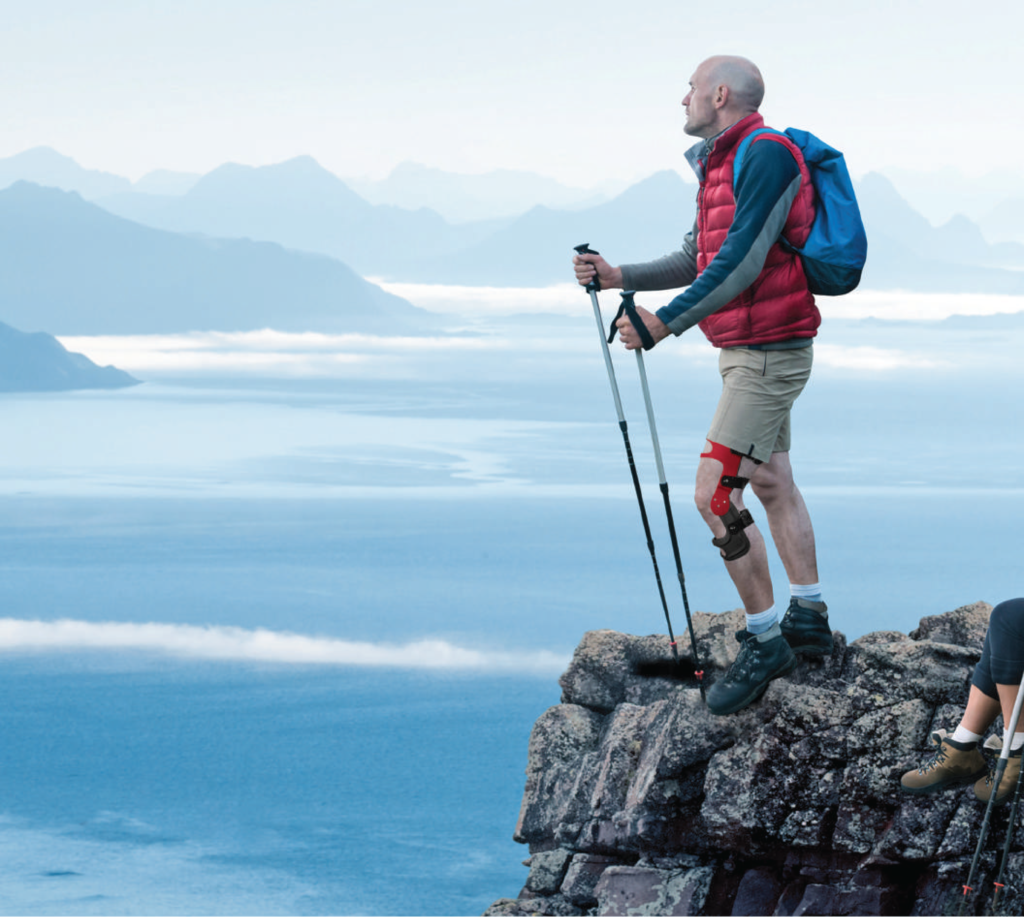Positive effects of exercise therapy on pain and function in osteoarthritis

Evoke 3D printed custom knee brace. Osskin
Despite the high prevalence and burden on health care systems, currently there is no cure for osteoarthritis (OA), whilst the number of individuals affected with symptomatic OA is expected to increase due to the aging of the population and the increasing prevalence of obesity worldwide.
Physical exercise is the most recommended non-pharmacological intervention for OA patients, since there is high-level evidence that physical exercise reduces pain and enhances physical function of joints affected by OA.
| Objective |
Although physical exercise is the commonly recommended for osteoarthritis (OA) patients, the working mechanism behind the positive effects of physical exercise on pain and function is a black box phenomenon. In the present study we aimed to identify possible mediators in the relation between physical exercise and improvements of pain and function in OA patients.
| Design |
A systematic search for all studies evaluating the effects of physical exercise in OA patients and select those that additionally reported the change in any physiological factor from pre-to post-exercise.
| Results |
In total, 94 studies evaluating 112 intervention groups were included. Most included studies evaluated subjects with solely knee OA (96 out of 112 groups). Based on the measured physiological factors within the included studies, 12 categories of possible mediators were formed.
Muscle strength and ROM/flexibility were the most measured categories of possible mediators with 61 and 21 intervention groups measuring one or more physiological factors within these categories, respectively. 60% (31 out of 52) of the studies showed a significant increase in knee extensor muscle strength and 71% (22 out of 31) in knee flexor muscle strength over the intervention period. All 5 studies evaluating extension impairments and 10 out of 12 studies (83%) measuring proprioception found a significant change from pre-to post-intervention.
| Conclusion |
An increase of upper leg strength, a decrease of extension impairments and improvement in proprioception were identified as possible mediators in the positive association between physical exercise and OA symptoms.
| References |
Identifying potential working mechanisms behind the positive effects of exercise therapy on pain and function in osteoarthritis; a systematic review, Runhaar J, Luijsterburg P, Dekker J, Bierma-Zeinstra SM. Osteoarthritis Cartilage. 2015 Jul;23(7):1071-82. doi: 10.1016/j.joca.2014.12.027. Epub 2015 Apr 9.
| Further reading |
Improvement in upper leg muscle strength underlies beneficial effects of exercise therapy in knee osteoarthritis: secondary analysis from a randomised controlled trial, Knoop J, Steultjens MP, Roorda LD, Lems WF, van der Esch M, Thorstensson CA, Twisk JW, Bierma-Zeinstra SM, van der Leeden M, Dekker J. Physiotherapy. 2015 Jun;101(2):171-7. doi: 10.1016/j.physio.2014.06.002. Epub 2014 Aug 13.
Effect of pre-operative neuromuscular training on functional outcome after total knee replacement: a randomized-controlled trial, Huber EO, de Bie RA, Roos EM, Bischoff-Ferrari HA. BMC Musculoskelet Disord. 2013 May 3;14:157. doi: 10.1186/1471-2474-14-157.
The Intensive Diet and Exercise for Arthritis (IDEA) trial: 18-month radiographic and MRI outcomes, Hunter DJ, Beavers DP, Eckstein F, Guermazi A, Loeser RF5, Nicklas BJ6, Mihalko SL, Miller GD, Lyles M, DeVita P, Legault C, Carr JJ, Williamson JD, Messier SP. Osteoarthritis Cartilage. 2015 Jul;23(7):1090-8. doi: 10.1016/j.joca.2015.03.034. Epub 2015 Apr 15.
Rehabilitation and Physical Therapy before and after Total Knee Arthroplasty: A Literature Review and Unanswered Questions, Alessandro Bistolfi, Anna Maria Federico, Irene Carnino, Cecilia Gaido, Ilaria Da Rold, Ernesta Magistroni, Maria Vittoria Actis, Alessandro Aprato and Giuseppe Massazza. Int J Phys Med Rehabil 4:356. July 25, 2016 doi: 10.4172/2329-9096.1000356
Also see
Tai Chi Exercise Reduces Knee Osteoarthritis Pain In The Elderly, Research Shows Science Daily
